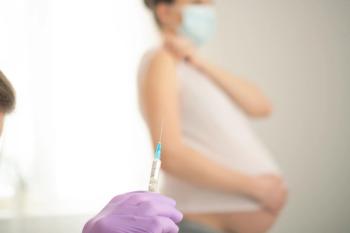
Early warning system is valuable for identifying who is at risk in the PICU
A pediatric early warning score (PEWS) predicts patient deterioration after transfer to a pediatric intensive care unit (PICU), according to a retrospective review of patients who were transferred to the PICU at a large children’s hospital during an 8-month period.
A pediatric early warning score (PEWS) predicts patient deterioration after transfer to a pediatric intensive care unit (PICU), according to a retrospective review of patients who were transferred to the PICU at a large children’s hospital during an 8-month period. Third-year pediatric resident opinion of patients’ risk for worsening does not have this strong association, however, the study showed. The PEWS tool used in the study is based on age-stratified respiratory rate, heart rate, and behavior ascertained at 4-hour intervals with scores ranging from 0 (all parameters normal) to 13 (all parameters abnormal). Physician opinion that the patient is at high risk of deterioration was defined as being placed by a senior resident on the senior sign-out (SSO) list, while deterioration was considered as the need for intubation, inotropes, high-flow nasal cannula, noninvasive mechanical ventilation, or aggressive fluid resuscitation within 12 hours of transfer to the PICU.
Of the 97 patients included in the study, 51 (53%) experienced a deterioration event in the 12 hours after PICU transfer. These patients had a maximum mean PEWS of 3.9 before transfer compared with a score of 2.9 in those patients who did not experience such an event. Further analysis showed that a PEWS ≥3 was significantly associated with risk of a later deterioration event, even after adjustment for age, gender, race/ethnicity, and whether the PICU transfer occurred within 24 hours of admission. On the other hand, the relationship between physician assignment to the SSO and a deterioration event was only marginal; physicians assigned patients who experienced a deterioration event within the 12-hour window to SSO 43% of the time and assigned patients who did not experience a deterioration event 30% of the time (
Commentary: Humbling but enlightening. Depending on intuition, a “blink response” or a gut reaction is essential in medicine. However, using evolving, evidence-based tools to enhance that approach may help us provide the best care to our patients, whether or not sick enough to be hospitalized.
Ms Freedman is a freelance medical editor and writer in New Jersey. Dr Burke, section editor for Journal Club, is chairman of the Department of Pediatrics at Saint Agnes Hospital, Baltimore, Maryland. The editors have nothing to disclose in regard to affiliations with or financial interests in any organizations that may have an interest in any part of this article.
Newsletter
Access practical, evidence-based guidance to support better care for our youngest patients. Join our email list for the latest clinical updates.








